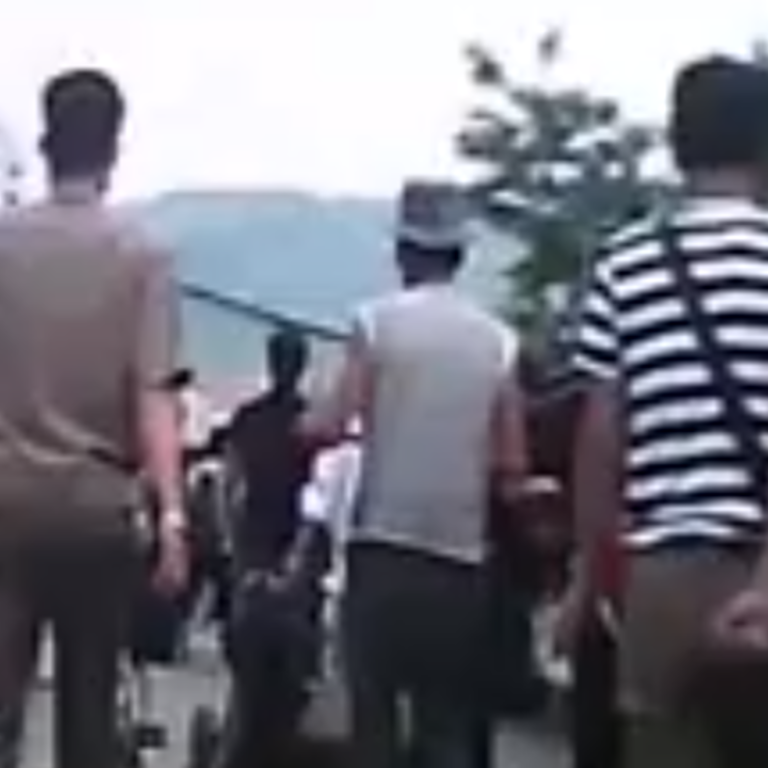
North Korea’s millennials, known as ‘The Jangmadang Generation’ are changing their country, new film shows
While the outside world is obsessed with Kim Jong-un and his nuclear weapons, ordinary North Koreans talk about the grass roots change taking place
From the outside, it might look like North Korea hasn’t changed much over the last seven decades. But from the inside, a fundamental shift has been taking place: an economic revolution lead by a generation of millennials who grew up as capitalists in a theoretically communist state.
They are the “Jangmadang Generation” – and they have emerged as the greatest force for change that North Korea has ever seen.
In the extraordinary documentary Jangmadang Generation, Liberty in North Korea (LiNK), a California-based organisation that helps those who have escaped, shows how young people are bringing about change in North Korea.
The jangmadang are the markets that popped up during the devastating famine in the 1990s, when the state could no longer provide for the people. As many as 2 million North Koreans starved to death as a result, and many of those who survived did so by turning into entrepreneurs out of necessity. Those with corn made corn noodles, those with beans made tofu.
Capitalism took root in this communist society and the regime had to tolerate it or risk an uprising.
The children of the 1990s famine grew up with the markets as part of their daily life and are, in many ways, native capitalists.
This is the most closed and repressive country in the world. But we wanted to let the audience see North Koreans are relatable people
Take Joo Yang, who was six years old when the famine began and grew up seeing people dying or starvation or cold. She began thinking about doing business when she was 14, and started out by picking leftover soybeans from the chaff at a factory and selling them.
Or Kang Min, who was separated from his mother when he was nine years old and never saw her again. He began a new life as a street beggar, or “flower swallow” as they are known in North Korea, and made his living as a pickpocket in the markets, working his way up to importing socks and batteries from China.
Or Danbi, who started importing clothes from China – copies of outfits worn in smuggled South Korean dramas – and had her good-looking friends walk through the markets in them, acting as human advertisements.
As a result of the famine, these kids grew up “bold and audacious”, says the mother of Geumju, another of the jangmadang generation.
Fast forward 20 years and those jangmadang are now the centrepiece of towns and cities across North Korea, having been retroactively legalised by a regime that knew it could not put this genie back in the bottle.
These days, the markets are not just a place for buying food and clothes and household goods. They have also become the clearing house for information from the outside world, a place where USB sticks loaded with foreign movies and soap operas can be bought.
The film came about after North Korean escapees kept telling Sokeel Park, South Korea country director for LiNK, that this change inside the country was important. While the outside world is obsessed with Kim Jong-un and his nuclear weapons, ordinary North Koreans talk about the grass roots change taking place.
Freedom means being able to work in a certain place if you want and not if you don’t want, being able to do your own business if you want
“This is the most closed and repressive country in the world,” said Park, who directed and narrates the film. “But we wanted to let the audience see North Koreans are relatable people, to see that many of these people have experienced incredible loss and tragedy, but to also see the dynamism that is happening across the country.”
All the members of the Jangmadang Generation featured in the film escaped to South Korea, where they are now studying at universities or making their own way in the world. While older North Koreans often struggle to adapt to the fast-paced and ruthless capitalism of the South, people of this generation usually settle right in.
“Our generation grew up learning about and seeing freedom while being repressed by the government at the same time,” said Huh Shimon. “So our desire for freedom is strong.”
Asked to define freedom, he said: “Freedom means being able to work in a certain place if you want and not if you don’t want, being able to do your own business if you want, living where you want and being able to go where you want.”

